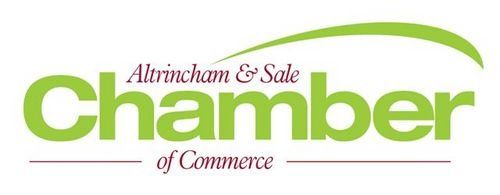FAQs
FAQs
When should I mediate?
Mediation can take place at any time, regardless of whether proceedings have been issued,, and at any stage in the court proceedings, even just days before the trial.
I’m reluctant to offer to mediate – will it be seen as a sign of weakness?
Mediation should not be seen as a sign of weakness. You have nothing to lose by offering to mediate even if you believe you have a strong case. No solicitor can guarantee you will win your case, so an offer to negotiate a settlement of the case should be seen as a commercial approach to the case.
What is the court’s opinion of mediation?
The use of mediation is encouraged wherever possible and it is now a standard direction from the court that the parties must consider mediation. If a party refuses to mediate, even if they win their case, their costs can be disallowed.
Are NWMS mediators insured?
Yes – all NWMS mediators are insured. Should you require any further details of individual mediators insurance or NWMS’ insurance please let us know.
Are NWMS mediators trained?
All NWMS mediators are fully trained by the leading training bodies and accredited with the CMC – Civil Mediation Council.
What is the CMC?
The Civil Mediation Council is the recognised authority for all matters relating to civil, commercial, workplace and other non-family mediation. They are an association of academics, professionals and providers in the mediation field. CMC encourages mediation as a way to settle your dispute and provides advice and guidance. You can visit their website at: www.civilmediation.org
This should be distinguished from a CMC in the litigation process which is the short name for a case management conference.
Will I be asked to do anything during the mediation that I don’t wish to?
No – mediation is a voluntary process. There are no obligations but we do ask you to come in good faith with an open mind and that you are prepared to listen.
Can I leave the mediation?
Yes – you can leave at any time, although the mediator will be keen to speak with you before you do so.
Who pays for the mediation?
The mediation costs are split equally between parties. The fee is required to be paid in full, in advance of the mediation day.
Do I still need to pay if the mediation does not settle?
Yes – the mediation fee is to cover the mediator facilitating the mediation regardless of the outcome. Although most cases do settle, there can be no guarantee of success.
Who decides the outcome of the mediation?
The decision making sits entirely with the parties involved in the dispute. The mediator does not decide the outcome. The mediator’s role is to help the parties enter into a dialogue to arrive at a conclusion which they are all happy with.
How soon can a mediation be arranged?
The date is to be agreed between the parties and how quickly they wish to proceed. Mediations can usually be arranged within a couple of weeks, or shorter timescale if required. The usual lead time is approximately one month.
Will I meet the mediator before the mediation day?
No – parties do not usually meet with the mediator until the day of the mediation. The mediator may discuss the case with your solicitor prior to the mediation.
Will the mediator be able to provide me with legal advice?
No – the mediator is an independent party and it is important that they remain impartial. You are able to speak freely with the mediator but they will not offer any advice. Should you feel that you may require advice, you should make your own arrangements beforehand.
Does my solicitor attend the mediation with me?
Yes – it is normal practice for your solicitor to attend and advise you during the day.
Can someone else accompany me to the mediation?
Yes, if you so wish. Please ensure you advise NWMS prior to the mediation of any attendees as their presence is to be noted on the Agreement to Mediate document.
Am I required to bring anything to the mediation?
Depending on the nature of your dispute, it is requested that you set out your case with a short position statement and provide copies of supporting documentation. This can then be forwarded to the mediator to allow him/her to prepare for the mediation date. You are also welcome to bring documents, photographs or other relevant items to the mediation should you wish to refer to them.
What happens if an agreement is not reached on the day?
If no agreement is reached on the day, the process will still have helped to resolve some of the issues involved in the dispute. The litigation will continue. As all discussions in the mediation remain “without prejudice” – anything said in the mediation cannot be used later in court or other legal proceedings.
Can mediation costs be recovered in a court case?
Possibly – most judges will award the winning party the costs of litigation and it can be argued that the costs may be recoverable. However, the rules are complicated and we would suggest that you seek legal advice should you have any queries about the issue associated with your dispute.
What is a stay?
If court proceedings have been issued in relation to a dispute that the parties wish to mediate, the court must be contacted and an application will need to be made to the judge to stay the proceedings to stop the court proceedings running. The order of a stay puts the proceedings on hold for a specified period of time to allow the parties to reach settlement outside the court process.
Should you have any further questions, please don’t hesitate in contacting us enquiries@nwmediationsolutions.co.uk









